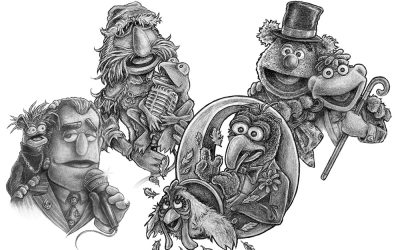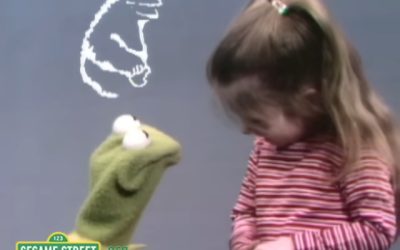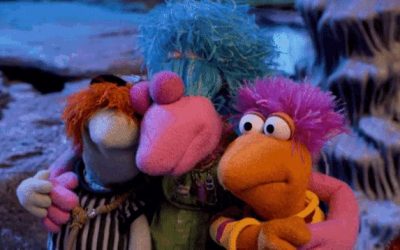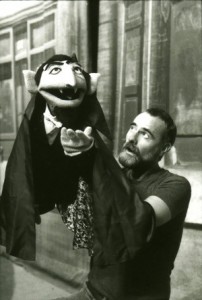 In the late hours of August 23, 2012, word slowly trickled out that Jerry Nelson, beloved Muppeteer, had passed away. And as the news reached more and more people, I couldn’t help but be reminded of the stories I heard of a similar day: May 16, 1990, a day that has since been long mourned by Muppet fans, the day Jim Henson died. Both succumbed to illness late at night, and both left behind a rich and fascinating legacy. Granted, I would be born almost three months after that day, but the stories I’ve been told and read made me realize just how much Jim Henson was valued as a person and as a colleague and friend, of which he was both to Jerry Nelson. But that unexpected day in 1990 would mark a dividing line that Muppet fans have judged productions to ever since: the Jim era and the post-Jim era. And since the question of “is it something Jim would have approved?” has been raised at one point or another to every episode, movie, album, and direct-to-video film, the people at the Muppets Studio, Sesame Workshop, and the Jim Henson Company have strived to maintain that level of humor and heart that was mastered by Jim Henson. It’s usually accepted amongst Muppet fans that the 1990’s were a time of change and transition, with the untimely deaths of Henson and Richard Hunt, and the gradual retirement of Frank Oz, but also the emergence of new performers like Bill Barretta, David Rudman, Eric Jacobson, and Matt Vogel. And at the center of it all, Jerry Nelson, once mostly a supporting performer, played a huge role in ushering in and mentoring a new generation of performers to carry on that legacy.
In the late hours of August 23, 2012, word slowly trickled out that Jerry Nelson, beloved Muppeteer, had passed away. And as the news reached more and more people, I couldn’t help but be reminded of the stories I heard of a similar day: May 16, 1990, a day that has since been long mourned by Muppet fans, the day Jim Henson died. Both succumbed to illness late at night, and both left behind a rich and fascinating legacy. Granted, I would be born almost three months after that day, but the stories I’ve been told and read made me realize just how much Jim Henson was valued as a person and as a colleague and friend, of which he was both to Jerry Nelson. But that unexpected day in 1990 would mark a dividing line that Muppet fans have judged productions to ever since: the Jim era and the post-Jim era. And since the question of “is it something Jim would have approved?” has been raised at one point or another to every episode, movie, album, and direct-to-video film, the people at the Muppets Studio, Sesame Workshop, and the Jim Henson Company have strived to maintain that level of humor and heart that was mastered by Jim Henson. It’s usually accepted amongst Muppet fans that the 1990’s were a time of change and transition, with the untimely deaths of Henson and Richard Hunt, and the gradual retirement of Frank Oz, but also the emergence of new performers like Bill Barretta, David Rudman, Eric Jacobson, and Matt Vogel. And at the center of it all, Jerry Nelson, once mostly a supporting performer, played a huge role in ushering in and mentoring a new generation of performers to carry on that legacy.
Let me explain with a little test. Here’s one of my favorite post-Jim musical numbers: “Cabin Fever” from Muppet Treasure Island. But rather than just watch the antics, really take a good listen, and keep an ear out for voices that sound like Jerry Nelson.
Now, I’m not an expert (yet) on pinpointing exacting which character voices belong to which Muppeteers, but I counted at least five Jerry Nelson voices: the red and yellow Muppet who sings the first line, Jacques Roach (who is, confusingly enough, voiced by Steve Whitmire later in the movie), the purple pirate wearing a monocle, the yodeling goat, and Spotted Dick. (This isn’t even counting Lew Zealand, who can’t be heard distinctly in the film, but does get his own line in the soundtrack version of the song.) And the most awesome part is that four of these characters are heard within one minute, which is almost half the song. Now when I think of all the Muppeteers to work on Muppet Treasure Island, to think that one person got to do most of the character voices in half of an “ensemble” number is incredible. That’s truly a testament to the myriad amount of talent that Jerry Nelson had.
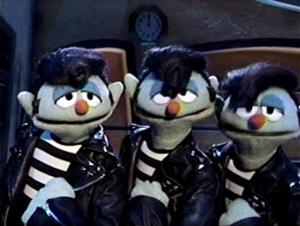 There’s a reason I bring this up, as this essay isn’t just about the facts, it’s about what he meant to a young man growing up and learning that two of his heroes had died before he got a chance to appreciate them. Once I really got into re-watching all things Muppets with a new admiration of the people underneath the characters, I found that Jerry Nelson meant a sense of normalcy in a period full of change. In an era of recasting and adjustment, Jerry’s characters were constant. Floyd, Robin, Lew Zealand, Herry Monster, and Count von Count were the same as they always were, and it was a source of comfort. But while Jerry was a link to the past, he also kept up with the new creative directions that the Muppets were taking, creating new characters in The Muppet Christmas Carol, Muppet Treasure Island, and Muppets Tonight. Hey, he was one of the Elvises, the most topical thing in 1996! And though he had strong bonds to his friend Richard Hunt, Jerry gave the part of Statler, a character he originally performed before Hunt took over, to Steve Whitmire in 2002, which, at least from a fan’s perspective, was a good decision, as Whitmire has managed to closer replicate Hunt’s voice for the character.
There’s a reason I bring this up, as this essay isn’t just about the facts, it’s about what he meant to a young man growing up and learning that two of his heroes had died before he got a chance to appreciate them. Once I really got into re-watching all things Muppets with a new admiration of the people underneath the characters, I found that Jerry Nelson meant a sense of normalcy in a period full of change. In an era of recasting and adjustment, Jerry’s characters were constant. Floyd, Robin, Lew Zealand, Herry Monster, and Count von Count were the same as they always were, and it was a source of comfort. But while Jerry was a link to the past, he also kept up with the new creative directions that the Muppets were taking, creating new characters in The Muppet Christmas Carol, Muppet Treasure Island, and Muppets Tonight. Hey, he was one of the Elvises, the most topical thing in 1996! And though he had strong bonds to his friend Richard Hunt, Jerry gave the part of Statler, a character he originally performed before Hunt took over, to Steve Whitmire in 2002, which, at least from a fan’s perspective, was a good decision, as Whitmire has managed to closer replicate Hunt’s voice for the character.
But perhaps the biggest testament to Jerry’s status as the “rock” of the Muppets was his determination in the face of overwhelming odds to continue performing, even as health problems threatened to wear him down. Even though he had passed his Muppet Show characters on to new performers, Jerry managed to continue performing his famous Sesame Street characters by any means necessary. If he couldn’t manage to hold the character up, someone else would operate it while Jerry provided the voice, and not once did anyone think of asking Jerry to give up his characters. It just wouldn’t be right, just as you wouldn’t ask Picasso to stop painting, or Morgan Freeman to stop narrating the lives of antarctic birds. And as the Muppets began their epic comeback last year, Jerry was there, providing the voiceover introduction to Kermit in The Muppets, and even taking time to narrate the opening of Jim Henson’s Musical World, emblematic of his love for what he has done countless times before. But now the time has come to start thinking of what will happen to Jerry’s characters after Jerry. There will likely be an appropriate mourning period, but in time, Herry will show up on Sesame Street. The Amazing Mumford will do his magic. And the Count will count again. There will be a sense of consistency and normalcy. It’s what Jerry stood for.
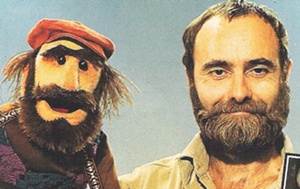
Click here to get Cabin Fever on the ToughPigs forum!
by Matthew Soberman

